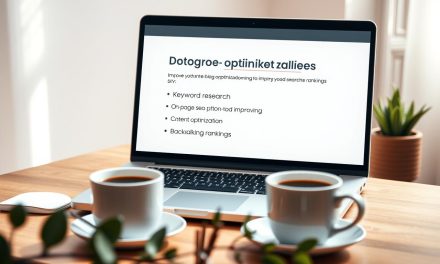Are you ready to bring artificial intelligence into your business? Many companies today use data analysis to find new opportunities. They want to stay ahead in a fast-moving market.
Hiring a freelance machine learning engineer can be a smart move. These experts bring skills and experience without the high cost of a full-time hire. They work on projects like chatbots, image recognition, and predictive models.
This guide will show you how to find and work with the right freelancer. You will learn to define goals, evaluate expertise, and ensure great results. Let’s explore how machine learning can drive your business growth!
Table of Contents
Key Takeaways
- Freelance machine learning experts offer flexible, cost-effective solutions for businesses.
- Machine learning can automate tasks and provide actionable insights from data.
- Hiring freelancers allows access to specialized skills without long-term commitments.
- Common projects include chatbot development, predictive modeling, and data analysis.
- Defining clear project goals is key to successful collaboration with freelancers.
- Freelancers help businesses scale quickly and adapt to market changes.
- Staying updated on AI trends ensures you leverage the latest advancements.
What is a Freelance Machine Learning Engineer?
A self-employed professional who offers specialized AI and data science services to multiple clients is known as a freelance machine learning engineer. They work on various projects, bringing technical expertise without long-term commitments.
These experts build and deploy systems that automate business tasks. They handle everything from initial design to ongoing management. Their goal is to make operations smoother and more efficient.
Daily activities often include data analysis, model development, and system improvements. They turn complex information into actionable insights. This helps companies make smarter decisions.
Strong skills in mathematics, analytics, and programming are essential. Many use Python and other tools. Good communication ensures they work well with teams.
| Skill Area | Description | Common Tools |
|---|---|---|
| Mathematics | Understanding algorithms and statistical methods | Linear Algebra, Calculus |
| Programming | Writing code to develop and deploy models | Python, R, TensorFlow |
| Data Analysis | Examining datasets to find patterns and trends | Pandas, SQL, Excel |
| Communication | Explaining complex ideas to clients and teams | Reports, Presentations |
Unlike in-house roles, freelancers enjoy flexibility in scheduling and project choice. They can work remotely or in hybrid settings. This adaptability meets diverse client needs.
Collaboration is key. They often partner with data scientists and software developers. Together, they create solutions that drive innovation.
The demand for these professionals is growing across industries. Businesses rely more on data and technology. Freelancers provide cost-effective access to top expertise.
In summary, freelance machine learning engineers offer valuable skills and flexibility. They help businesses innovate and stay competitive. Their work leads to smarter, more efficient operations.
Why Hire a Freelance Machine Learning Engineer?
Bringing in outside talent offers unique advantages for modern businesses. It allows access to top-tier skills without the overhead of full-time hires.
This approach is perfect for companies needing specialized help. You get expert support exactly when you need it.
Access to Specialized Expertise
Freelancers often possess niche skills that are hard to find locally. They bring deep knowledge in areas like artificial intelligence and data analysis.
Many have worked on diverse projects across industries. This broad experience means they can tackle complex challenges.
You gain insights from their work with different clients. They apply best practices from various sectors to your specific needs.
Cost-Effective Solutions for Projects
Hiring freelancers saves money compared to permanent staff. You avoid expenses like benefits, office space, and long-term salaries.
This model works well for short-term projects or pilot tests. You pay only for the work completed.
It’s ideal when you need specific skills for a limited time. There’s no need for extensive training or onboarding.
Freelancers can start quickly and deliver results faster. Their focus on your project means efficient progress.
They bring fresh ideas from working in various settings. This outside perspective often leads to innovative solutions.
« The flexibility of freelance talent allows businesses to scale their AI capabilities on demand, adapting quickly to market changes. »
Consider these scenarios where freelancers excel:
- Developing a new predictive model
- Analyzing large datasets for actionable insights
- Creating custom software solutions
- Testing new AI applications before full commitment
While there are challenges like remote coordination, clear communication solves most issues. The benefits typically outweigh any drawbacks.
This approach gives businesses agility in a competitive market. You can respond quickly to opportunities without long-term commitments.
Benefits of Working with a Freelance Machine Learning Engineer
Partnering with independent AI specialists offers remarkable advantages for forward-thinking companies. These professionals bring fresh perspectives and specialized knowledge that can transform your operations.
Businesses gain access to top-tier talent without the overhead of full-time hires. This approach allows for strategic resource allocation and faster project completion.
Flexibility and Scalability
External specialists provide incredible flexibility in project engagement. Companies can bring in experts for specific periods without long-term commitments.
This model supports scaling team size based on project phases. You can expand during intensive development and reduce during maintenance phases.
Remote collaboration enables work across different time zones. Teams can progress around the clock when needed.
Seasonal demands become easier to manage. Businesses can handle peak periods without permanent staffing increases.
Innovation and Competitive Advantage
Independent professionals introduce cutting-edge technologies from various industries. They bring methodologies tested across different business environments.
Project timelines often accelerate with specialized external help. Companies gain access to expertise that might not exist internally.
Fresh perspectives lead to innovative problem-solving approaches. External experts challenge conventional thinking within organizations.
« The agility provided by external AI talent allows businesses to implement advanced solutions faster than competitors, creating significant market advantages. »
Knowledge transfer occurs naturally during collaboration. Internal teams learn new techniques and best practices.
Cost efficiency improves through optimized resource allocation. Businesses pay only for needed expertise without long-term financial commitments.
| Benefit Category | Business Impact | Implementation Example |
|---|---|---|
| Operational Flexibility | Adapt quickly to changing needs | Scale team during product launches |
| Cost Management | Reduce overhead expenses | Pay for specific project phases only |
| Innovation Speed | Faster time to market | Implement new algorithms quickly |
| Knowledge Transfer | Skill development for internal teams | Learn advanced data analysis techniques |
| Competitive Edge | Stay ahead of industry trends | Deploy cutting-edge AI solutions first |
Strategic partnerships with external professionals foster continuous business growth. Organizations maintain adaptability in rapidly evolving markets.
The combination of specialized skills and flexible engagement creates powerful advantages. Businesses can pursue ambitious projects with confidence and efficiency.
Common Projects for Freelance Machine Learning Engineers
The range of projects handled by external data science professionals spans from customer service to agricultural monitoring. These specialists bring diverse technical capabilities to solve complex business challenges.
Their work often involves creating intelligent systems that process information and make predictions. This helps companies automate tasks and gain valuable insights from their data.
Many organizations engage these experts for specific initiatives rather than ongoing needs. This approach allows businesses to access specialized skills exactly when required.
Chatbot Development and Natural Language Processing
Creating intelligent conversational agents represents a significant area of work for data specialists. These systems use natural language processing to understand and respond to human queries.
Advanced implementations include realistic « talking head » avatars that enhance user engagement. The technology analyzes text or speech inputs to generate appropriate responses.
Customer service automation remains a primary application for these solutions. Businesses deploy them to handle common inquiries and provide 24/7 support.
« Intelligent chatbot systems can reduce response times by 80% while maintaining customer satisfaction scores above industry averages. »
These projects typically involve training models on large datasets of conversation examples. The systems learn patterns and contexts to improve their interaction quality over time.
Image Recognition and Satellite Data Analysis
Visual data processing represents another major category of work for technical specialists. Applications range from facial recognition to object detection across various industries.
Satellite imagery analysis has become particularly valuable for agricultural monitoring. Experts develop systems that detect and calculate crop areas from aerial images.
This technology helps farmers optimize resource allocation and predict yields. It can identify problem areas that need attention before they affect overall production.
Other applications include urban planning, environmental monitoring, and security systems. The technology continues to expand into new domains as capabilities improve.
| Project Type | Primary Applications | Key Technologies |
|---|---|---|
| Chatbot Systems | Customer service, support automation | NLP, Deep Learning |
| Image Recognition | Security, quality control, medical imaging | Computer Vision, CNN |
| Satellite Analysis | Agriculture, urban planning, environmental monitoring | Remote Sensing, GIS |
| Predictive Modeling | Sales forecasting, risk assessment, maintenance | Regression Analysis, Time Series |
| Fraud Detection | Financial services, e-commerce, insurance | Anomaly Detection, Pattern Recognition |
Additional common initiatives include web-based applications for real-time anomaly detection. These systems monitor operations and alert teams to unusual patterns immediately.
Product review classification helps businesses identify authentic feedback versus fake comments. This maintains review integrity and supports better decision-making.
Custom Python scripts for data processing and analysis form another frequent request. These tools automate repetitive tasks and extract valuable information from raw data.
Model compression techniques enable efficient deployment on compact devices. This expands application possibilities to mobile and edge computing environments.
The diversity of these initiatives demonstrates the broad impact of artificial intelligence across sectors. Each project delivers specific value through targeted technical solutions.
How to Find a Reliable Freelance Machine Learning Engineer
Finding the right external specialist requires smart strategies and clear goals. You need someone with specific talents who fits your project perfectly.
Different approaches work for different needs. Some methods give you many options quickly. Others focus on quality over quantity.
Define your project needs before you start looking. Clear goals help attract the right talent. They also make evaluation easier later.
Using Freelance Platforms like Upwork and Toptal
Online marketplaces connect businesses with technical specialists worldwide. These platforms offer various types of professionals.
Volume-based sites like Upwork have many available workers. They welcome all skill levels and experience. You can post projects and receive many bids.
Quality-focused platforms like Toptal use strict screening processes. They test candidates thoroughly before acceptance. You get pre-vetted experts but pay higher rates.
Each platform serves different business needs. Your choice depends on budget, timeline, and quality requirements.
| Platform Type | Best For | Pros | Cons |
|---|---|---|---|
| Volume-Based | Quick hires, limited budgets | Many options, fast responses | Varying quality, more screening needed |
| Quality-Based | Complex projects, premium work | Verified skills, reliable results | Higher costs, longer hiring process |
Networking and Social Media Strategies
Personal connections often lead to great partnerships. Industry events and conferences bring experts together.
Meet professionals face-to-face at relevant gatherings. Share your project needs and listen to their experiences. These conversations build trust and understanding.
Online communities offer another valuable resource. Join groups focused on data science and artificial intelligence. Participate in discussions and watch for talented members.
LinkedIn works particularly well for professional connections. Search for profiles with specific skills and project history. Send personalized messages explaining your needs clearly.
« The best collaborations often start through trusted referrals rather than cold searches. »
Ask colleagues and business partners for recommendations. People who have worked with good specialists will gladly share contacts.
Look for professionals who have done similar work before. Check their portfolios and client feedback. Past success often predicts future performance.
Balance your search between speed and quality. Rushing might lead to poor matches. Taking too long delays your project.
Combine multiple methods for best results. Use platforms for initial searches and networking for quality checks. This approach increases your chances of finding the perfect match.
Evaluating a Freelance Machine Learning Engineer’s Skills
Choosing the right specialist for your project requires careful evaluation. You want someone with both technical knowledge and practical experience.
Look for professionals who understand your industry and goals. They should communicate clearly and show genuine interest in your success.

Independent data experts often receive outstanding feedback from clients. Many platforms show ratings of 4.9 stars from thousands of reviews.
This reflects their commitment to quality results and client satisfaction. The best professionals continuously improve their methods.
Technical Proficiency in Python and Data Science
Strong coding abilities form the foundation of effective data work. Python remains the primary language for most projects.
Look for familiarity with key libraries like NumPy and Pandas. These tools handle data manipulation and analysis efficiently.
Scikit-learn expertise indicates solid understanding of algorithms. Professionals should know how to select and tune models.
Statistical knowledge helps in designing proper experiments. It ensures accurate interpretation of results.
Testing technical skills through code reviews or small tasks works well. This reveals practical abilities beyond theoretical knowledge.
Experience with Similar Projects
Past work in your industry provides valuable insight. Professionals understand specific challenges and opportunities.
Review portfolios for projects matching your needs. Look for detailed case studies showing problem-solving approaches.
Discuss previous challenges they’ve overcome. Their solutions demonstrate creativity and adaptability.
References from past clients confirm reliability and quality. Positive feedback indicates successful collaborations.
Clear communication about complex concepts is essential. Professionals should explain technical details in understandable terms.
Watch for warning signs like vague project descriptions. Specific examples and measurable outcomes indicate serious professionals.
A thorough evaluation process ensures successful partnerships. It matches your needs with the right expertise.
Setting Clear Project Goals and Expectations
Starting a new project with an external specialist requires crystal-clear direction from day one. Well-defined objectives prevent confusion and keep everyone focused on the same targets.
Think of this phase as creating a roadmap for success. You’re outlining what needs to be achieved and how you’ll measure progress along the way.
Clear expectations help both parties understand their responsibilities. They create a foundation for trust and efficient collaboration throughout the engagement.
Defining Deliverables and Timelines
Specific outcomes make projects successful. Instead of vague ideas, define concrete results like « a trained prediction model » or « an analysis report with actionable insights. »
Break larger goals into smaller milestones. This makes progress measurable and provides natural checkpoints for review.
Consider these factors when setting timelines:
- Data availability and quality
- Model complexity and training requirements
- Testing and validation phases
- Integration with existing systems
Realistic scheduling accounts for unexpected challenges. Build in buffer time for revisions and additional testing when needed.
Document everything in a scope agreement. This written record prevents misunderstandings about what’s included in the project.
Communicating Business Objectives
Technical experts perform better when they understand your bigger picture. Share your company’s strategic goals and how this project supports them.
Explain whether you’re aiming to reduce costs, improve customer satisfaction, or enter new markets. This context helps specialists make better decisions.
Regular check-ins keep projects aligned with business needs. Schedule weekly updates to discuss progress and adjust direction if necessary.
« Projects with clearly documented goals are 70% more likely to meet expectations and deliver measurable business value. »
Be open about potential changes in priorities. Discuss how scope adjustments will be handled to maintain project momentum.
| Project Element | Clear Definition | Vague Definition |
|---|---|---|
| Deliverable | Chatbot with 90% accuracy rate | Better customer service tool |
| Timeline | Complete data analysis in 14 days | Finish when possible |
| Success Metric | Reduce processing time by 30% | Make things faster |
| Data Requirements | 10,000 labeled customer interactions | Some customer data examples |
This approach creates productive partnerships where everyone understands their role. Clear expectations lead to better results and smoother collaborations.
Remember that good communication works both ways. Encourage questions and discussions throughout the project lifecycle.
Understanding the Cost of Hiring a Freelance Machine Learning Engineer
Budgeting for specialized talent involves careful consideration of various pricing structures and value factors. Knowing what to expect helps businesses make informed decisions that balance quality with affordability.
Different projects require different payment approaches. Some work better with hourly arrangements while others suit fixed-price agreements.
Clear understanding of cost components prevents surprises later. It ensures fair compensation for the specialist while protecting your budget.
Hourly Rates vs. Fixed-Price Projects
Hourly billing works well for open-ended initiatives where scope might change. You pay for actual time spent on tasks like data cleaning or model tuning.
This approach offers flexibility when requirements evolve during development. It accommodates unexpected challenges without renegotiating entire contracts.
Fixed-price agreements provide cost certainty for well-defined initiatives. Both parties agree on deliverables and timeline before work begins.
This model suits projects with clear specifications and predictable outcomes. It protects budgets when scope remains unchanged throughout engagement.
| Pricing Model | Best For | Advantages | Considerations |
|---|---|---|---|
| Hourly Rates | Evolving requirements, research phases | Flexibility, pays for actual work | Final cost uncertainty |
| Fixed Price | Clear specifications, defined outcomes | Budget certainty, scope protection | Less flexibility for changes |
Factors Influencing Pricing
Specialist experience significantly impacts rates. Professionals with proven track records command higher fees due to their expertise.
Complexity of work affects pricing through required skill levels and time investment. Advanced algorithms or large datasets increase project demands.
Market conditions influence availability of top talent. High demand areas often see premium rates for quality professionals.
Geographic location plays role in rate structures. Some regions have higher living costs that reflect in service pricing.
Project urgency can affect costs through accelerated timelines. Tight deadlines may require premium compensation for priority attention.
« Investing in proven expertise often delivers better value than choosing the lowest bid, as quality work reduces revision needs and accelerates results. »
Additional expenses like software licenses or cloud computing resources impact overall budgets. These should be discussed during initial planning phases.
Transparent conversations about all cost components build trust between parties. They ensure mutual understanding of financial commitments.
Quality specialists justify their rates through efficient work and reliable outcomes. Their contributions often save money through avoided mistakes and faster completion.
Balancing cost considerations with project needs leads to successful partnerships. The right pricing structure supports both quality results and budget management.
Negotiating Contracts and Terms
Creating solid agreements forms the foundation of successful partnerships with technical specialists. A well-crafted contract protects everyone involved and sets clear expectations from the start.
These documents outline responsibilities, timelines, and financial arrangements. They prevent misunderstandings and create professional working relationships.

Good contracts balance flexibility with structure. They allow for project evolution while maintaining core protections.
Key Clauses to Include
Several essential elements belong in every professional agreement. These components address common concerns and potential challenges.
The scope section details exactly what work will be performed. It lists deliverables, milestones, and specific outcomes.
Payment terms clarify financial arrangements completely. They specify amounts, schedules, and methods for compensation.
Confidentiality provisions protect sensitive business information. They ensure proprietary data remains secure throughout collaboration.
Consider these critical contract components:
- Project description with detailed deliverables and deadlines
- Clear payment schedules including amounts and due dates
- Confidentiality agreements protecting business information
- Intellectual property rights defining ownership of created assets
- Termination conditions outlining exit procedures
- Dispute resolution methods for handling disagreements
Intellectual property clauses deserve special attention. They determine who owns the code, models, and other created assets.
Termination provisions explain how to end the relationship properly. They cover notice periods and final payments.
Dispute resolution methods offer alternatives to legal action. Mediation or arbitration can resolve issues more efficiently.
« A comprehensive contract acts as both roadmap and safety net, guiding the project while protecting all parties involved. »
Liability sections address responsibility for potential issues. They define limits and obligations for different scenarios.
These elements combine to create thorough protection. They address both immediate needs and future considerations.
Ensuring Legal Protection
Legal safeguards require careful attention to detail and local regulations. Different locations have varying requirements for professional agreements.
International collaborations need extra consideration. Laws differ across countries regarding contracts and business relationships.
Tax obligations represent another important consideration. Clear agreements prevent confusion about financial responsibilities.
Professional legal review provides valuable protection. Lawyers can identify potential issues and suggest improvements.
Thorough contract review prevents future problems. All parties should understand every provision before signing.
Mutual agreement on terms creates strong foundations. Discussions should continue until everyone feels comfortable.
Understanding French contract law is particularly important for navigating the freelance world successfully. Local regulations affect many aspects of professional relationships.
These precautions establish professional and secure working relationships. They demonstrate commitment to fair and transparent collaboration.
Well-drafted agreements benefit both clients and specialists. They create environments where creativity and innovation can thrive.
Managing the Collaboration with Your Freelance Machine Learning Engineer
Great partnerships begin with clear communication and mutual understanding. When working with external specialists, establishing smooth workflows ensures everyone stays aligned and productive throughout the engagement.
Regular check-ins and transparent updates create trust between all parties. They help address challenges quickly and keep projects moving forward efficiently.
Successful collaborations balance structure with flexibility. They adapt to changing needs while maintaining clear direction toward shared goals.
Effective Communication Practices
Consistent communication forms the backbone of any successful partnership. Establishing regular touchpoints keeps everyone informed and engaged.
Weekly video meetings provide valuable face-to-face interaction. They allow for detailed discussions about progress and upcoming tasks.
Daily stand-ups work well for fast-moving initiatives. These brief check-ins identify blockers quickly and maintain momentum.
Popular platforms like Slack and Zoom facilitate smooth interactions. They support both real-time conversations and asynchronous updates.
Clear documentation ensures important information isn’t lost. Shared notes and meeting summaries create reliable reference points.
« Teams that communicate daily complete projects 40% faster and report higher satisfaction with final outcomes. »
Cultural awareness improves cross-border collaborations. Understanding different work styles and holidays prevents misunderstandings.
Time zone differences require thoughtful scheduling. Finding overlapping working hours ensures timely responses to urgent matters.
Professional yet friendly interactions build strong relationships. They create environments where people feel comfortable sharing ideas and concerns.
Tracking Progress and Providing Feedback
Visibility into project advancement keeps everyone confident about direction. Modern tools make monitoring milestones straightforward and accurate.
Platforms like Trello and Asana organize tasks visually. They show what’s completed, in progress, and upcoming at a glance.
JIRA works well for technical teams following agile methodologies. It supports detailed issue tracking and sprint planning.
Regular progress reports summarize achievements and next steps. They provide stakeholders with clear updates without overwhelming details.
Constructive feedback should be specific and actionable. Instead of general comments, provide examples and suggestions for improvement.
Timely input prevents small issues from becoming major problems. Addressing concerns early maintains project quality and schedule.
Celebrating successes boosts team morale and motivation. Recognizing achievements encourages continued excellence throughout the engagement.
Transparency about challenges builds trust and facilitates problem-solving. Open discussions about obstacles lead to better solutions.
These practices create productive and positive working relationships. They ensure projects meet expectations while maintaining good team dynamics.
Leveraging Machine Learning for Business Growth
Smart companies use advanced technology to improve their operations and results. These tools help them work smarter and serve customers better.
Many industries now benefit from intelligent systems. These solutions handle complex tasks and provide valuable information.
Applications in Various Industries
Different sectors use these technologies in unique ways. Each industry finds specific solutions for its challenges.
Healthcare organizations use predictive systems for patient care. They analyze medical records to identify potential health issues early.
Financial institutions implement fraud detection systems. These monitor transactions in real-time to spot suspicious activity.
Retail businesses create personalized shopping experiences. They analyze customer behavior to recommend products people will love.
« Companies using intelligent systems report 35% higher customer satisfaction and 28% increased operational efficiency. »
Manufacturing plants use quality control automation. Cameras and sensors inspect products faster than human eyes.
Agriculture benefits from crop monitoring technology. Drones and satellites help farmers make better decisions about their fields.
Transportation companies optimize delivery routes. They consider traffic, weather, and delivery windows to save time and fuel.
| Industry | Primary Application | Key Benefit |
|---|---|---|
| Healthcare | Patient outcome prediction | Early intervention |
| Finance | Fraud detection | Risk reduction |
| Retail | Personalized recommendations | Increased sales |
| Manufacturing | Quality control | Defect reduction |
| Agriculture | Crop monitoring | Yield improvement |
| Transportation | Route optimization | Cost savings |
Measuring ROI and Impact
Understanding the value of technology investments is crucial. Businesses need clear ways to measure success and improvement.
Start by tracking efficiency gains. Measure how much time automated systems save compared to manual processes.
Calculate cost reductions from optimized operations. Include savings from reduced errors and better resource use.
Monitor revenue increases from improved customer experiences. Track how personalization affects sales numbers.
Key performance indicators help quantify results:
- Processing time reduction percentage
- Error rate decrease
- Customer satisfaction scores
- Revenue growth from targeted initiatives
- Resource utilization improvements
Pilot projects demonstrate value before full implementation. Small tests show potential without large investments.
Continuous monitoring ensures ongoing optimization. Regular reviews identify areas for further improvement.
Long-term benefits include scalability and adaptability. Systems that learn and grow with your business provide lasting value.
These technologies create competitive advantages in today’s market. They open new revenue streams and improve existing operations.
The transformative potential of these systems drives sustainable growth. They help businesses thrive in an increasingly digital world.
Challenges of Working with Freelance Machine Learning Engineers
Collaborating with external data specialists presents unique obstacles that require thoughtful planning. While these partnerships offer incredible benefits, they also demand careful attention to specific areas.
Understanding potential hurdles helps businesses prepare effectively. Proactive strategies turn challenges into opportunities for successful collaboration.

Managing Remote Collaboration
Distance creates communication gaps that can affect project progress. Teams working across different locations need structured approaches to stay connected.
Time zone differences require creative scheduling solutions. Finding overlapping work hours ensures timely responses to urgent questions.
Tool compatibility becomes essential for smooth operations. Teams must agree on platforms for sharing files, tracking progress, and holding meetings.
Regular video calls maintain personal connections despite physical separation. These meetings build trust and clarify complex technical concepts.
Clear documentation prevents misunderstandings about tasks and expectations. Shared notes and project outlines keep everyone aligned.
« Successful remote teams establish communication rhythms that balance structure with flexibility, ensuring progress without overwhelming participants. »
Project management systems like Asana or Trello provide visual progress tracking. They show completed tasks and upcoming priorities at a glance.
Daily check-ins work well for fast-moving initiatives. Brief updates identify blockers quickly and maintain momentum.
Cultural awareness improves international collaborations. Understanding different work styles prevents potential misunderstandings.
Ensuring Data Security and Privacy
Protecting sensitive information becomes paramount when working with external specialists. Businesses must implement robust security measures throughout projects.
Encrypted communication channels safeguard discussions about proprietary information. Secure platforms prevent unauthorized access to confidential data.
Access controls limit information exposure to only what’s necessary for specific tasks. This minimizes risk while maintaining productivity.
Confidentiality agreements form the legal foundation for data protection. These documents clearly outline responsibilities and consequences for breaches.
Secure storage solutions protect datasets during analysis and model development. Cloud services with strong encryption provide reliable protection.
Regular security audits identify potential vulnerabilities before they become problems. Proactive monitoring maintains protection throughout engagements.
Industry-specific regulations require special attention in sectors like healthcare and finance. Compliance ensures legal protection and customer trust.
Selection processes should prioritize professionals with proven security track records. Past clients can verify their handling of sensitive information.
Clear protocols for data handling prevent accidental exposure. Step-by-step guidelines ensure consistent protection practices.
These measures create environments where innovation thrives without compromising security. They balance accessibility with protection.
Tips for a Successful Partnership
Creating a strong working relationship with an external specialist brings lasting benefits to both parties. It transforms single projects into ongoing collaborations that drive continuous improvement.
Trust and clear communication form the foundation of these partnerships. They allow for creative problem-solving and efficient project execution.
Building Long-Term Relationships
Consistent reliability builds confidence over multiple engagements. Delivering quality work on time demonstrates professional commitment.
Transparency about challenges and progress fosters mutual respect. Open discussions create environments where issues get resolved quickly.
Reduced onboarding time becomes a significant advantage in subsequent projects. Familiarity with business processes accelerates work initiation.
Deeper understanding of organizational needs leads to better solutions. Specialists who know your industry provide more relevant insights.
These relationships often extend beyond initial contracts. Satisfied clients frequently re-engage specialists for new initiatives.
« Long-term collaborations reduce project startup time by 60% while increasing solution quality through accumulated domain knowledge. »
Positive experiences lead to valuable referrals within professional networks. Happy clients become powerful advocates for your services.
Maintaining connections after project completion keeps doors open for future opportunities. Occasional check-ins preserve relationships without constant engagement.
Encouraging Innovation and Creativity
Granting autonomy inspires creative approaches to complex challenges. Specialists bring fresh perspectives when allowed to explore possibilities.
Experimental freedom often leads to breakthrough solutions. Some of the best ideas emerge from unstructured exploration.
Regular brainstorming sessions generate innovative concepts. Collaborative discussions combine different viewpoints into unique solutions.
Consider these strategies for fostering creativity:
- Allocate time for experimental development without immediate pressure
- Encourage suggestions for process improvements and new approaches
- Create safe environments where unconventional ideas receive consideration
- Recognize and reward contributions that demonstrate original thinking
Breakthrough solutions frequently emerge from cross-disciplinary insights. Specialists with diverse experience make unexpected connections.
Enhanced project outcomes justify investment in creative exploration. Innovative approaches often deliver superior results compared to conventional methods.
Recognition of valuable contributions motivates continued excellence. Acknowledgment reinforces positive behaviors and encourages loyalty.
Regular retrospectives identify lessons from each engagement. These sessions extract insights for application in future collaborations.
Continuous learning environments value diverse perspectives and new information. They adapt quickly to changing requirements and opportunities.
Successful partnerships create mutual benefits through sustained innovation and growth. They represent strategic advantages in competitive markets.
Finding the right specialist involves careful consideration of multiple factors. Platforms like specialized freelance networks offer valuable resources for connecting with qualified professionals.
How to Become a Freelance Machine Learning Engineer
Starting a career as an independent AI specialist opens doors to exciting opportunities. You can work on diverse projects while enjoying flexibility and growth. This path requires dedication and strategic planning.
Success comes from combining technical knowledge with business savvy. You need strong skills and a professional presence. Let’s explore how to build this rewarding career.
Developing Essential Skills and Expertise
Strong mathematical foundations are crucial for this field. Focus on linear algebra, statistics, and probability theory. These subjects form the backbone of intelligent systems.
Programming languages like Python and R are essential tools. They help you build and deploy models effectively. Java also offers valuable capabilities for certain applications.
Understanding neural networks and deep learning architectures is vital. These technologies power advanced artificial intelligence solutions. They enable complex pattern recognition and prediction.
Formal education provides structured learning opportunities. Consider certificate courses from reputable institutions. Noble Desktop offers excellent data science and generative AI programs.
Practical experience reinforces theoretical knowledge. Work on real-world problems to develop true expertise. Each project enhances your problem-solving abilities.
« The best specialists combine theoretical knowledge with hands-on experience, creating solutions that deliver real business value. »
Continuous learning keeps you current with emerging technologies. The field evolves rapidly with new techniques and tools. Staying updated ensures you remain competitive.
Building a Portfolio and Online Presence
Your portfolio demonstrates capabilities to potential clients. Include diverse projects showing different skills. Chatbots, data analysis tools, and prediction models make great examples.
Create a professional website showcasing your best work. Detail your approach and results for each project. This becomes your digital business card.
Platforms like GitHub display your coding abilities. They allow others to review your work and methodology. Clean, well-documented code impresses technical clients.
LinkedIn profiles attract business opportunities. Highlight your experience and specialized knowledge. Connect with industry professionals and join relevant groups.
Social media platforms extend your reach. Share insights about artificial intelligence and data analysis. This establishes your authority in the field.
Networking events introduce you to potential collaborators. Attend conferences and meetups in your area. Personal connections often lead to valuable projects.
Business skills complement technical abilities. Learn about marketing, contracts, and client management. These practical knowledge areas support sustainable independent work.
Many successful professionals started with small initiatives. They gradually expanded their client base through quality work. Patience and persistence build strong reputations.
This career path offers incredible personal and professional fulfillment. You solve interesting problems while controlling your work environment. The journey requires effort but delivers substantial rewards.
Future Trends in Machine Learning Freelancing
The landscape of technical consulting continues to evolve rapidly. New technologies and market demands create exciting opportunities for specialists and businesses alike.
Digital transformation drives innovation across all sectors. Companies seek advanced solutions to stay competitive in changing markets.

The Growing Demand for AI Expertise
Businesses increasingly recognize the value of intelligent systems. They need professionals who can implement these technologies effectively.
Specialized knowledge becomes more valuable as tools advance. Companies look for experts with specific experience in their industry.
Technical missions now require niche specializations more than ever. About 68% of projects demand specific skill sets that generalists cannot provide.
This trend creates excellent opportunities for focused professionals. Those with deep expertise in particular areas find consistent work.
« The shift toward specialized skills reflects the maturation of artificial intelligence applications across business functions. »
Industries from healthcare to finance seek custom solutions. Each sector has unique data challenges and regulatory requirements.
Professionals with relevant experience command premium rates. Their specific knowledge delivers better results faster.
This specialization trend shows no signs of slowing. As technology advances, the need for focused expertise grows.
Emerging Technologies and Opportunities
New tools and methods create fresh possibilities for innovation. Generative systems represent one of the most exciting developments.
These technologies can create original content and solutions. They open doors to applications previously considered impossible.
Edge computing brings processing power closer to data sources. This reduces latency and enables real-time analysis in remote locations.
Reinforcement learning techniques continue to improve autonomous systems. They help machines learn through trial and error like humans do.
Several emerging areas offer particular promise:
- Ethical consulting for responsible implementation
- Custom model development for niche applications
- Integration services for legacy systems
- Training programs for internal teams
Remote collaboration tools make global partnerships easier. Professionals can work with clients anywhere while maintaining quality results.
Regulatory frameworks evolve to address new challenges. Experts who understand these requirements provide valuable guidance.
The field offers endless possibilities for growth and innovation. Those who adapt to changing tools and methodologies thrive.
Businesses can stay ahead by leveraging external talent for cutting-edge technical projects. This approach provides access to the latest skills without long-term commitments.
Successful professionals focus on continuous learning and adaptation. They monitor industry developments and expand their skill sets accordingly.
The future looks bright for those who embrace change and innovation. New technologies create opportunities for those ready to explore them.
Conclusion
This guide has shown how external data specialists can transform your operations. They bring fresh ideas and specialized knowledge to your projects.
You gain access to top talent without long-term commitments. This approach saves money and keeps your team flexible.
Clear communication and defined goals ensure great results. Strong management practices turn challenges into successes.
Artificial intelligence drives innovation across industries. It helps companies stay competitive in changing markets.
Take the first step toward smarter business solutions. Explore how these experts can help your organization grow.
The future looks bright for those embracing new technologies. Continuous learning and adaptation lead to lasting success.
FAQ
What does a freelance machine learning engineer do?
A freelance machine learning engineer builds and deploys AI models for businesses. They work on tasks like data analysis, model training, and creating systems that provide actionable insights.
Why should I hire a freelance machine learning engineer instead of a full-time employee?
Hiring a freelancer gives you access to specialized skills without long-term commitments. It’s cost-effective and allows you to scale your team based on project needs.
What are some common projects a freelance machine learning engineer can help with?
They often work on projects like chatbot development, image recognition, and analyzing satellite data. These tasks help businesses automate processes and gain deeper insights.
How do I find a reliable freelance machine learning engineer?
You can use platforms like Upwork or Toptal to find vetted professionals. Networking on social media and industry forums also helps connect you with top talent.
What should I look for when evaluating a freelance machine learning engineer’s skills?
Check their technical proficiency in tools like Python and their experience with similar projects. Reviewing their portfolio and client feedback is also important.
How is the cost of hiring a freelance machine learning engineer determined?
Costs can be based on hourly rates or fixed project fees. Factors like project complexity, required expertise, and timeline influence the final price.
What are some best practices for managing a collaboration with a freelance machine learning engineer?
A> Maintain clear communication, set regular check-ins, and provide timely feedback. Using project management tools can help track progress and keep everything on schedule.
What industries benefit most from hiring freelance machine learning engineers?
Industries like healthcare, finance, e-commerce, and tech often leverage these skills for tasks like predictive analytics, customer personalization, and process optimization.
How can I ensure data security when working with a freelance machine learning engineer?
Use secure file-sharing tools, sign non-disclosure agreements, and only share necessary data. Always verify their reputation and past work with sensitive information.
What are the emerging trends in machine learning freelancing?
Demand for AI expertise is growing rapidly. New opportunities in areas like deep learning and ethical AI are creating more niches for skilled freelancers.





